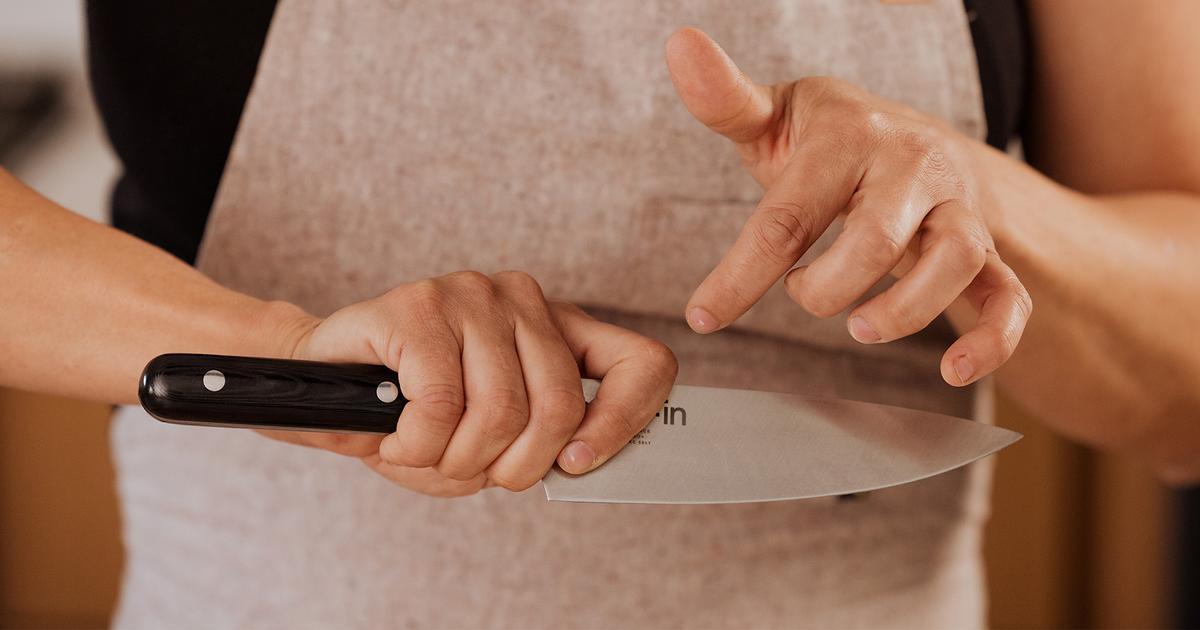As any seasoned barbecue enthusiast knows, the tools you use in the kitchen can make or break your cooking experience. This is particularly true when it comes to knives. One might wonder, why would a chef use a sharp knife instead of a dull knife? The answer is more critical than you might think and has a significant impact on your grilling sessions.

The Importance of Sharp Knives in the Kitchen
A sharp knife isn't just a luxury; it's a necessity. Anyone who has spent time by the grill, meticulously preparing meat, vegetables, and other ingredients, knows that precision is key. Achieving the perfect slice can enhance the presentation and texture of your dish, making it not only look good but taste incredible.
Sharp knives offer several benefits, such as:
- Precision and Control: A sharp knife allows for cleaner cuts, which is essential for everything from trimming fat off a steak to slicing vegetables for a skewer.
- Safety: It may seem counterintuitive, but sharp knives are safer than dull ones. A dull knife requires more force to cut through food, increasing the risk of the knife slipping and causing injury.

Quality of Cuts: Essential for Barbecue Enthusiasts
Barbecue enthusiasts often deal with a variety of meats, ranging from tender cuts of chicken breasts to tougher cuts like brisket. The quality of the cut can affect how evenly the meat cooks and how it interacts with marinades and rubs. For example, slicing meat with a sharp knife ensures that the fibers of the meat remain intact, allowing for more even cooking and better flavor absorption.
Sharp knives are particularly crucial when you're working on intricate tasks like butterflying chicken breasts or creating thin, even slices of brisket for smoking. These tasks require a level of precision that simply cannot be achieved with a dull knife.
Safety: A Critical Concern
The saying a dull knife is a dangerous knife exists for a reason. When you use a dull knife, you need to exert more effort to cut through food items. This additional force increases the chance of the knife slipping. In contrast, a sharp knife makes clean cuts every time, reducing the amount of force needed and thereby reducing the risk of accidents.

Sharpening Your Knives: A Necessary Kitchen Skill
Understanding why chefs prefer sharp knives is one thing; knowing how to maintain that sharpness is another. Regular sharpening is essential for keeping your knives in optimal condition. Many professional chefs sharpen their knives daily before service to ensure they are in peak condition.
There are several tools available for sharpening knives, including sharpening stones, honing rods, and electric sharpeners. Each tool has its advantages and drawbacks, so it's worth experimenting to find the one that best meets your needs.

Materials and Durability
Quality also plays a significant role in knife performance. High-carbon stainless steels are often recommended for their ability to maintain a sharp edge for longer periods. Investing in a quality knife can save you money in the long run and provide a more enjoyable and efficient cooking experience.
For more insights on quality knife brands, you might find this article on Dalstrong knives helpful.
Maintaining a Sharp Knife
Maintaining a sharp knife doesn't end with sharpening. Proper storage and handling are also essential. Always use a cutting board to preserve the sharpness of your knife and store knives in a knife block or on a magnetic strip to prevent dulling.
Proper Cutting Techniques
Learning proper cutting techniques can also preserve the life of your knife. For example, using a rocking motion rather than chopping straight down can help keep the blade sharp for longer periods.
For more on cutting techniques, check out this guide on cutting fruits and vegetables.
Frequent Inspection and Maintenance
Regularly inspect your knives for signs of wear and tear. Sharpen and hone them as needed to maintain their performance. A well-maintained knife can last a lifetime, preventing the need for frequent replacements.
Final Thoughts: Why Sharp Knives are Non-Negotiable
As we've explored, the question why would a chef use a sharp knife instead of a dull knife? carries a range of implications, especially for barbecue enthusiasts. A sharp knife ensures precision, safety, and excellent quality of cuts, all of which contribute to a superior grilling experience.
Getting the right tools and maintaining them well can make every barbecue session a delightful and memorable experience.
For more tips on maintaining your kitchen tools, read our article on when to replace a utility knife blade.
FAQs
How frequently should I sharpen my knife?
This depends on how often you use it. Professional chefs usually sharpen their knives daily, but for home use, sharpening every few weeks to a month is generally sufficient.
Can I use a cutting board to maintain knife sharpness?
Yes, using a cutting board, preferably wooden or plastic, can help maintain your knifes sharpness by reducing wear on the blade.
What kind of knife should I use for barbecuing?
A high-quality chef's knife or a good boning knife is excellent for barbecue preparation due to their versatility and precision.
As an Amazon Associate, I earn from qualifying purchases.


























